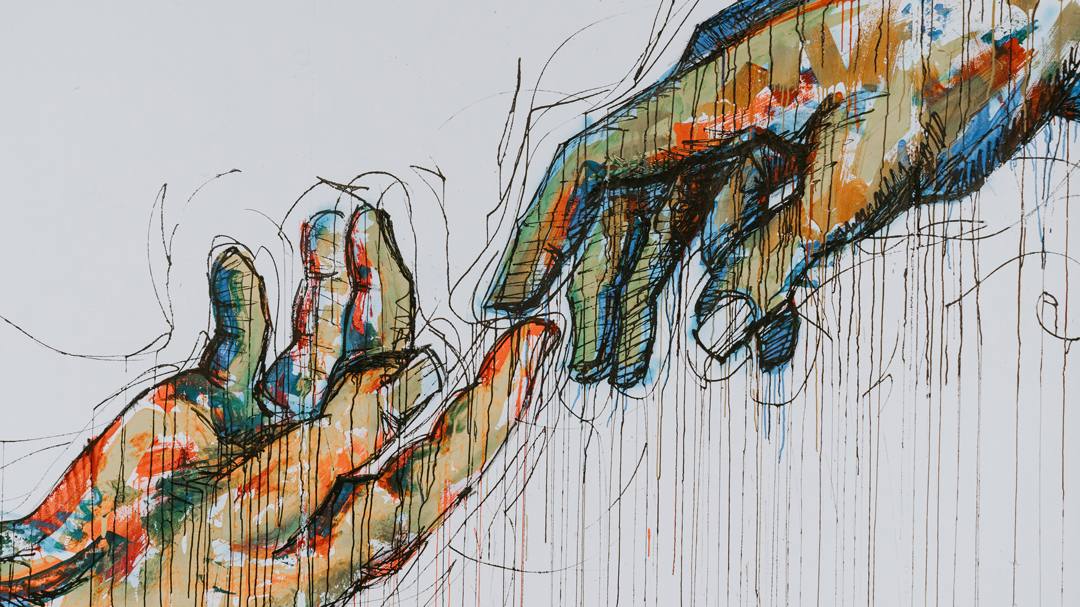The Love of God
- Pete Johnson

We are quickly being sucked into the year 2021. Because of the turmoil that we have lived through during 2020, a lot of folks might be thinking “let’s get there and put 2020 behind us!”. However, the mere change in a number will not magically change our circumstances, our sufferings, or losses.
The Old Testament book of Lamentations, whose authorship is highly attributed to the Prophet Jeremiah, is a lament (a deep expression of grief) over the destruction of Jerusalem and the temple. Jeremiah described, in the book that bears his name, the horrible destruction that God allowed to come upon Judah and the city of Jerusalem for their constant sin, disobedience, and rebellion. He experienced first-hand the gut-wrenching pain of seeing and experiencing ghastly suffering, even those who were obedient to God were affected by God’s judgment.
Chapter three of Lamentations provides an insight into the grief and lost hope that Jeremiah experienced during that time. In the first part of the chapter Jeremiah uses words and phrases such as these to describe his situation:
3:1–2: “I am the man who has seen affliction under the rod of his wrath; he has driven and brought me into darkness without any light; surely against me he turns his hand again and again the whole day long.”
vs 4: “he has broken my bones’
vs 5: “besieged and enveloped me with bitterness and tribulation”
vs 7: “I cannot escape “, “he has made my chains heavy”
vs 8: “though I call and cry for help, he shuts out my prayer”vs 16: “He has made my teeth grind on gravel”, “my soul is bereft of peace”
He had come to the place where he had almost lost his hope in God
Vs 18: so I say “My endurance has perished; so has my hope from the LORD.”
Where is God’s Love in this? Is He present?
However, even though Jeremiah was experiencing suffering, despair, pain, and the confusion of why God was allowing this to happen to him as God’s servant, he remembered and recognized the following.
“But this I call to mind, and therefore I have hope: The steadfast love of the LORD never ceases, his mercies never come to an end; they are new every morning; great Is thy faithfulness. “The LORD is my portion,” says my soul, “therefore I will hope in him.” (Lamentations 3:21–24).
The Hebrew word hesed, חֶסֶד, “steadfast love” is one of the most beautiful words in the Hebrew language, expressing, as much as possible in the English language, God’s faithful, kind, and gracious love for his people.
When we struggle with why things are happening, like Jeremiah, we too can hold fast to the promise that God’s steadfast love is always there. But we have to look for it, and hope in it.
I grant you, there are times where we cannot see with our human eyes, comprehend with our human minds, or feel God’s steadfast love with our human hearts. So where do we look? Where do we go, from where do we draw our faith, that God’s steadfast love never ceases?
We know the answer, it’s to the LORD! So call this to mind and have hope!
Psalm 121, which is one of the Song of Ascents, songs that were sung by worshipers going up to the Temple in Jerusalem to worship is a wonderful Psalm to meditate on.
My Help Comes from the Lord
A Song of Ascents.
121 I lift up my eyes to the hills.
From where does my help come?
2 My help comes from the Lord,
who made heaven and earth.
3 He will not let your foot be moved;
he who keeps you will not slumber.
4 Behold, he who keeps Israel
will neither slumber nor sleep.
5 The Lord is your keeper;
the Lord is your shade on your right hand.
6 The sun shall not strike you by day,
nor the moon by night.
7 The Lord will keep you from all evil;
he will keep your life.
8 The Lord will keep
your going out and your coming in
from this time forth and forevermore










